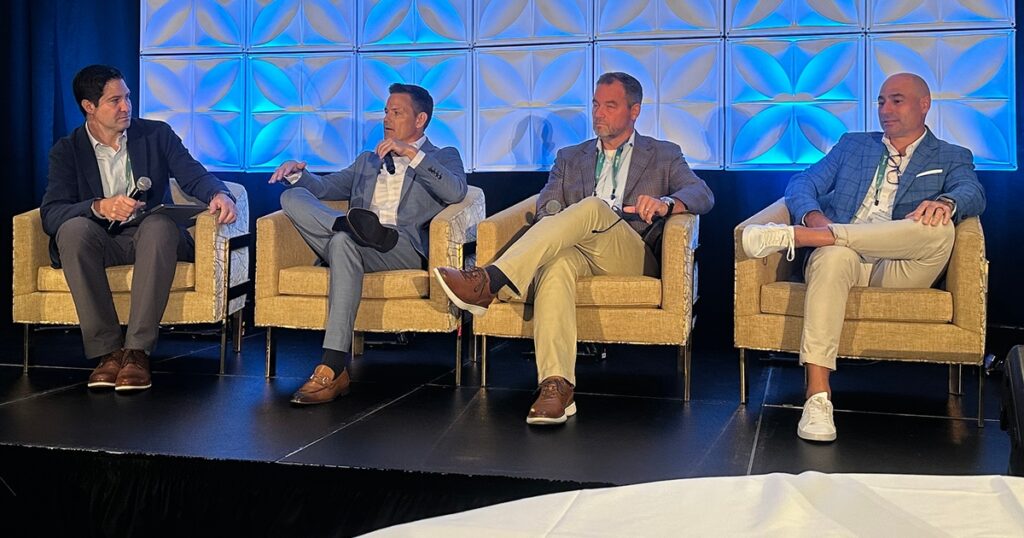With so much consolidation happening within the registered investment advisor space and M&A reaching new heights, buyers and sellers will often consider culture as a deciding factor in whether to partner with someone. After all, culture may be the factor in determining whether the two create a lasting partnership.
Scott Danner, executive vice president and head of legacy at Steward Partners, said his firm bases a consistent culture on human relationships, whether that’s with clients, advisors or senior leadership.
“I like to dumb culture down to something simple, and that is, in our industry everything you hear often revolves around transactions,” he said, speaking at the RIA Edge Los Angeles conference this week. “In my life, in our culture, in things that I think matter in life, it’s around the human. And that means the relationship has to be more important than the transaction.”
“When people care about the human behind the business, the business is better,” he added.
This is especially important when doing mergers and acquisitions. RIAs should understand the human behind the transaction to make it work. For most sellers, it’s an emotional process, he said.
“I’ve seen people look like they’ve lost their grandmother,” he said. “It’s the most successful day of their life on paper, but it’s the most challenging moment of their life.”
Danner compares it to being courted; there are things you didn’t know about your spouse when you got married. But like in business, you hope that you agree on the “big rocks.” It’s important that there’s honesty on both sides of the deal and communication up front about what’s most important.
“So many times you bring someone in, and they never told you how important this one thing was,” he said.
Danner brought up one example, where they had brought on a new firm, and the son of one of the partners had severe anxiety and couldn’t come into work. And that was a very important human thing that would’ve been helpful to know up front. Once Summit understood, they could make it right.
“Communicating, establishing what’s most important, really helps build that culture,” he said.
Mike Wunderli, a managing director and head of M&A at Captrust, said culture should be established by leadership from the outset.
“And leadership, for it to work, has to absolutely live and breathe it and believe it and then act it,” Wunderli said. “If anyone is a parent to teenagers, they can smell blood from a mile away. If you’re faking it or disingenuous, they know in two seconds. Same thing with an organization.”
Culture is also dynamic and always evolving.
“You have to acknowledge that, especially when you’re in a game of growth and acquisitions,” he said. “As you get bigger, every time you add a new piece to your family, you’re adding a new piece of culture. It just has to fit. It doesn’t have to be the same culture; it has to work with the culture.”
Joe McCuine, president and CFO at Modera, said his firm spends a lot of time with people at other firms when considering a transaction.
“Ultimately, culture is, can you work with these people?” he said.
Modera puts itself out there as a collaborator, so the firm strives to deal with people up front to determine if they can work together.

